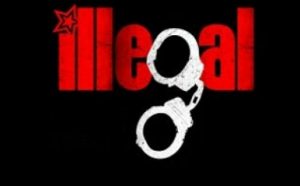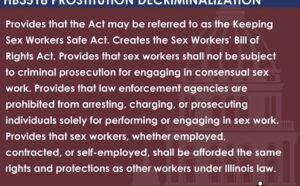It sounds like a mafia shakedown: Pay a good chunk of protection money, and they’ll make sure nothing bad comes along to harm your precious corporate reputation.
Before I took the plunge and began running my own small business, I worked primarily as a trademark attorney. While trademark law is no longer my life’s focus, I still find myself fascinated with branding and intellectual property. Whenever new business owners ask me for my single biggest tip, I always tell them to protect their intellectual property early and thoroughly.
After all, brands take years of blood, sweat and tears to build up. Business owners are very protective of their brands, and they have every right to be. I bought the .xxx domain for my own website for that very reason; I was willing to spend more for a sense of security that my business’s name wouldn’t be tied to pornography.
But ICANN’s recent announcement regarding the selling of generic top-level domains (or gTLDs) made my heart sink. If you haven’t been following along at home, the short version is ICANN will be doling out gTLDs (the dot-com, dot-org, and dot-net strings after domain names) for a fairly hefty fee starting this Thursday, the twelfth of January.
With $185,000 and a good business standing, buyers can get the rights to nearly any gTLD they can think of. Apple can grab .ipod and Coke could nab .cola to stick onto the end of their respective domain names.
The thinking is that the “good business standing” requirement, difficult application process and large price tag will deter most people looking to make a quick buck by swooping in and squatting on a popular gTLD like “.computer” or “.food,” and the expansion of gTLDs will mean a flourishing of unfettered creativity from some of our favorite mega corporations.
But I just don’t see that happening. Granted, some clever wordplay will be used for certain gTLDS, but most of the mad dash that is going to be seen the minute these gTLDs go up for sale on Thursday will be motivated by a desire to protect their reputation, not express corporate creativity.
The last thing Coca-Cola wants is for a group seeking to expose the seedy underbelly of the corporate world to grab .coke and use it to harm the brand.
Small to mid-size businesses that operate primarily online are going to have even bigger problems holding onto their cultivated brand awareness. Do I now have to buy the .corp, .corporation, .mycorp, and .mycorporation gTLDs just so I can continue creating goodwill for the primary MyCorporation.com domain without having to worry about protecting my image?
It sounds like a mafia shakedown: Pay a good chunk of protection money, and they’ll make sure nothing bad comes along to harm your precious corporate reputation.
The Internet Corporation for Assigned Names and Numbers (ICANN) is an independent firm and was originally created to challenge the monolithic Network Solutions and its claim on .com domains. And yet, fourteen years down the line, ICANN now has the stranglehold on top-level domains. Though it is a nonprofit organization, it is hard to argue $185,000 per top-level domain won’t prove to be lucrative for ICANN’s own goals and campaigns.
But ICANN stands with the U.S. government on its side, so it is unlikely that any major challenger would even begin to threaten ICANN’s golden market position.
This really agitates the problem of power on their part. They get to choose who gets the most generic domains, the .products of the world, and effectively give them a protected monopoly. Is it fair that one organization can hold all of the rights to .shirt or .book? I can’t say for certain, but it just doesn’t sit well in my mind.
Maybe if I were still an attorney, my opinion about this particular development would be slightly different; after all, the ones who are going to benefit the most from this change will be the cadres of lawyers needed to successfully navigate the application process.
But my gut instinct as a small business owner is to look at this development warily and wonder how much more difficult they are going to make it for us to build and protect our own brands.
Despite vocal objections, most small businesses are probably going to have to slump their shoulders and just deal with it, hoping that any absolute blatant infringements on their intellectual property can be dealt with through the regular channels (another win for IP lawyers). Trademarks and other legal protections are still available, and I’m willing to bet that if anyone blatantly steals a brand name and turns it into a gTLD without owning the rights to the name, they’ll quickly find themselves in hot water.
However, we need to judge this change in internet protocol on what it will do for the billions of online users worldwide. Will it add clarity, drive innovation and prove to be a net good?
I doubt it. If anything the further division of the internet is just going to make things even more confusing. But it will make people money, and in the end I can only hope dollar signs don’t end up clouding reasonable judgment.
From VentureBeat







